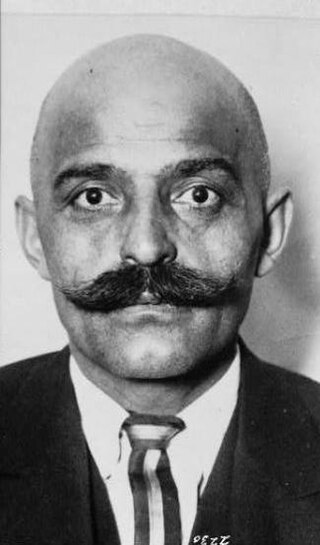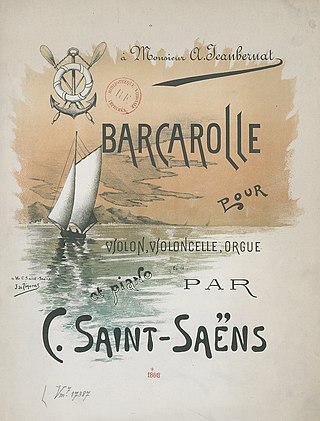
Franz Liszt was a Hungarian composer, virtuoso pianist, conductor and teacher of the Romantic period. With a diverse body of work spanning more than six decades, he is considered to be one of the most prolific and influential composers of his era, and his piano works continue to be widely performed and recorded.

George Ivanovich Gurdjieff was a philosopher, mystic, spiritual teacher, composer, and "dance teacher". Gurdjieff taught that people are not conscious of themselves and thus live their lives in a state of hypnotic "waking sleep", but that it is possible to awaken to a higher state of consciousness and serve our purpose as human beings. The practice of his teaching has become known as "The Work" and is additional to the ways of the fakir, monk and yogi, so that his student P. D. Ouspensky referred to it as the "Fourth Way".

Thomas Alexandrovich de Hartmann was a Ukrainian-born composer, pianist and professor of composition.

The Fourth Way is an approach to self-development developed by George Gurdjieff over years of travel in the East. It combines and harmonizes what he saw as three established traditional "ways" or "schools": first, those of the body; second, the emotions; and third, the mind. Students often refer to the Fourth Way as "The Work", "Work on oneself", or "The System". The exact origins of some of Gurdjieff's teachings are unknown, but various sources have been suggested.

Sigfrid Karg-Elert was a German composer in the early twentieth century, best known for his compositions for pipe organ and reed organ.

The pump organ or reed organ is a type of free-reed organ that generates sound as air flows past a vibrating piece of thin metal in a frame. The piece of metal is called a reed. Specific types of pump organ include the American reed organ, the Indian harmonium, the physharmonica, and the seraphine. The idea for the free reed was derived from the Chinese sheng through Russia after 1750, and the first Western free-reed instrument was made in 1780 in Denmark.
In music, instrumentation is the particular combination of musical instruments employed in a composition, and the properties of those instruments individually. Instrumentation is sometimes used as a synonym for orchestration. This juxtaposition of the two terms was first made in 1843 by Hector Berlioz in his Grand traité d'instrumentation et d'orchestration modernes, and various attempts have since been made to differentiate them. Instrumentation is a more general term referring to an orchestrator's, composer's or arranger's selection of instruments in varying combinations, or even a choice made by the performers for a particular performance, as opposed to the narrower sense of orchestration, which is the act of scoring for orchestra a work originally written for a solo instrument or smaller group of instruments.
The Wedding, or Svadebka (Russian: Свадебка), is a Russian-language ballet-cantata by Igor Stravinsky scored unusually for four vocal soloists, chorus, percussion and four pianos. Dedicating the work to impresario Sergei Diaghilev, the composer described it in French as "choreographed Russian scenes with singing and music" [sic], and it remains known by its French name of Les noces despite being Russian.
Harmonium was a Quebec progressive rock band formed in 1972 in Montreal. It became one of the most well-known music bands in the province of Québec in the 1970s and continues to hold an iconic and influential status to this day.

Gioachino Rossini's Petite messe solennelle was written in 1863, possibly at the request of Count Alexis Pillet-Will for his wife Louise, to whom it is dedicated. The composer, who had retired from composing operas more than 30 years before, described it as "the last of my péchés de vieillesse".

Ebenezer Prout was an English musical theorist, writer, music teacher and composer, whose instruction, afterwards embodied in a series of standard works still used today, underpinned the work of many British classical musicians of succeeding generations.
The Piano Concerto in E-flat was John Ireland’s only concerto. It was composed in 1930 and given its first performance on 2 October of that year by its dedicatee Helen Perkin at a Promenade Concert in the Queen's Hall. The work was an immediate success and was frequently performed by pianists such as Clifford Curzon, Moura Lympany, Eileen Joyce, Gina Bachauer and Arthur Rubinstein. While it is considered one of the best piano concertos ever written by an Englishman, it is not often heard nowadays and is not part of the standard repertoire.

Fort Yawuh is a jazz album by American pianist and composer Keith Jarrett. Originally released in 1973 by Impulse! Records, it marks the beginning of the label’s relationship with Jarrett. Recorded live at the Village Vanguard on February 24, 1973 by Jarrett's "American Quartet": Dewey Redman on tenor saxophone, Charlie Haden on acoustic bass, Paul Motian on drums, plus percussionist Danny Johnson. The title of the album is an anagram of "Fourth Way," a reference to George Gurdjieff's fourth path of self-awareness.

G.I. Gurdjieff: Sacred Hymns is an album by pianist Keith Jarrett recorded March 1980 and released on ECM September that year, featuring solo piano performances of the sacred hymns of George Gurdjieff and Thomas de Hartmann.
Weihnachtsbaum is a suite of 12 pieces written by Franz Liszt in 1873–76, with revisions in 1881. The suite exists in versions for solo piano and piano four-hands. Weihnachtsbaum does not demand great virtuosity, and it has been described as a distant relation of Schumann's Kinderszenen and Debussy's Children's Corner. It occupies an unusual place in Liszt's output, and it may be for these reasons that it has received relatively little attention from performers.

Camille Saint-Saëns's Barcarolle in F major, Op. 108 is a chamber composition for a quartet consisting of violin, cello, harmonium and piano. Composed in 1898, the work also exists in a version for violin, cello, viola and piano created by the composer in 1909.
Camille Saint-Saëns' Serenade in E-flat major, Op. 15 is a chamber composition for a quartet consisting of piano, organ, violin and viola, composed in 1865. It is one of the earliest works by the composer to make use of an organ in a chamber ensemble, preceded only by the Six Duos for harmonium and piano, Op. 8. In addition to the original scoring, the work has been transcribed for orchestra, piano solo, piano four-hands, and for piano quartet, with a cello taking the part of the organ.
Elan David Sicroff is a concert pianist, recording artist, and educator. He is the foremost interpreter of music composed by Thomas de Hartmann (1885–1956) and the spiritualist George Gurdjieff.

Via Crucis, S.53, is a work for mixed choir, soloists and organ by Franz Liszt. The work is devoted to the Stations of the Cross. It is one of the last works of Liszt.
Helen Craddock Perkin was an English pianist and composer, best known today for her association with John Ireland during the 1920s and 1930s.










